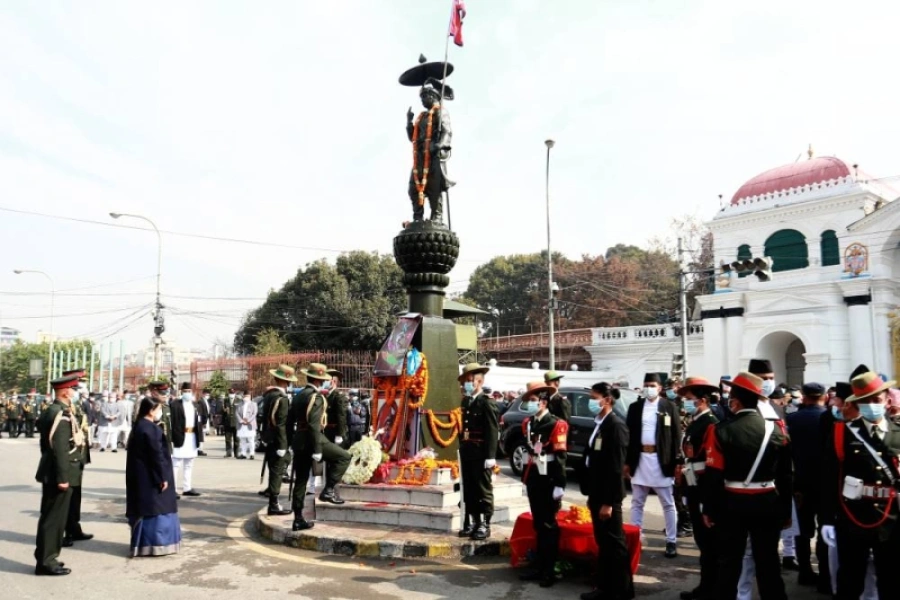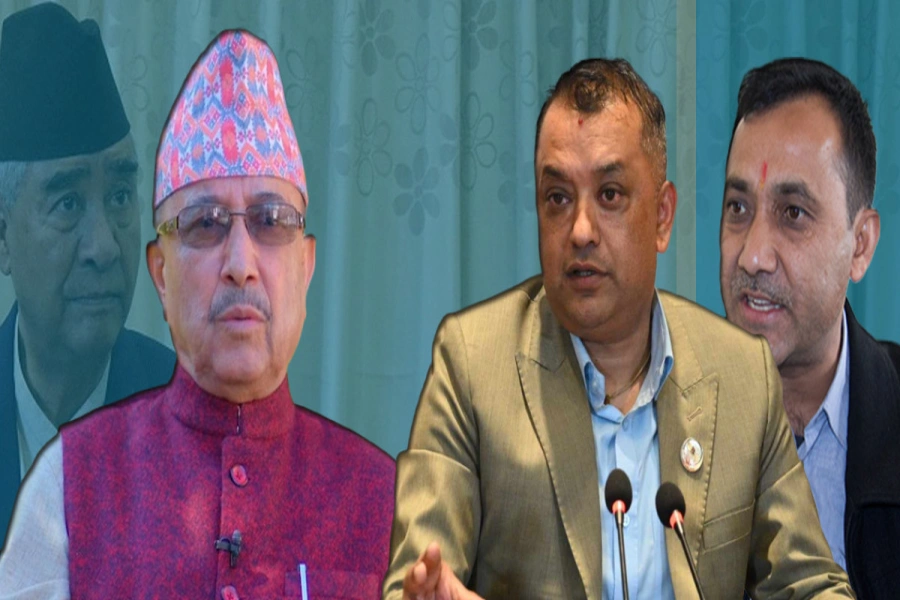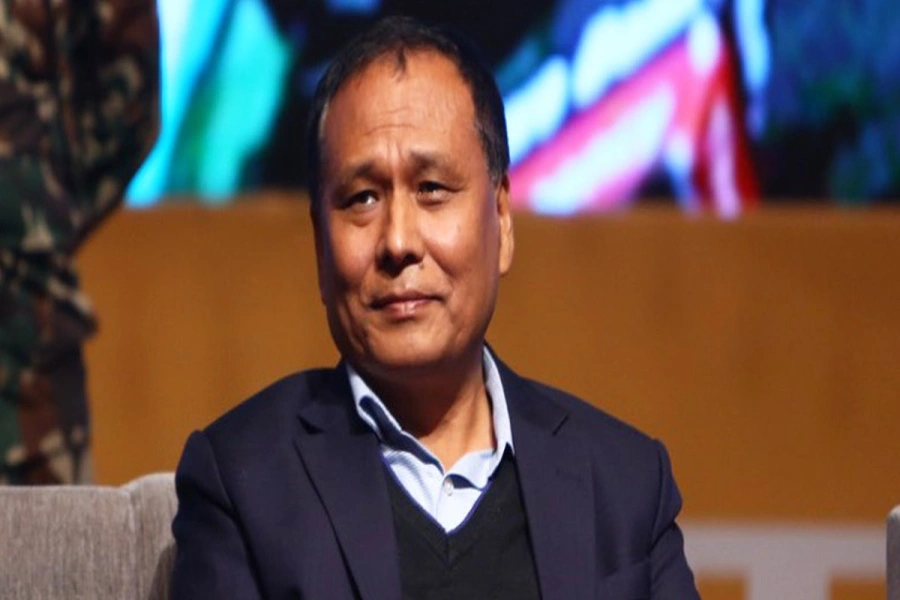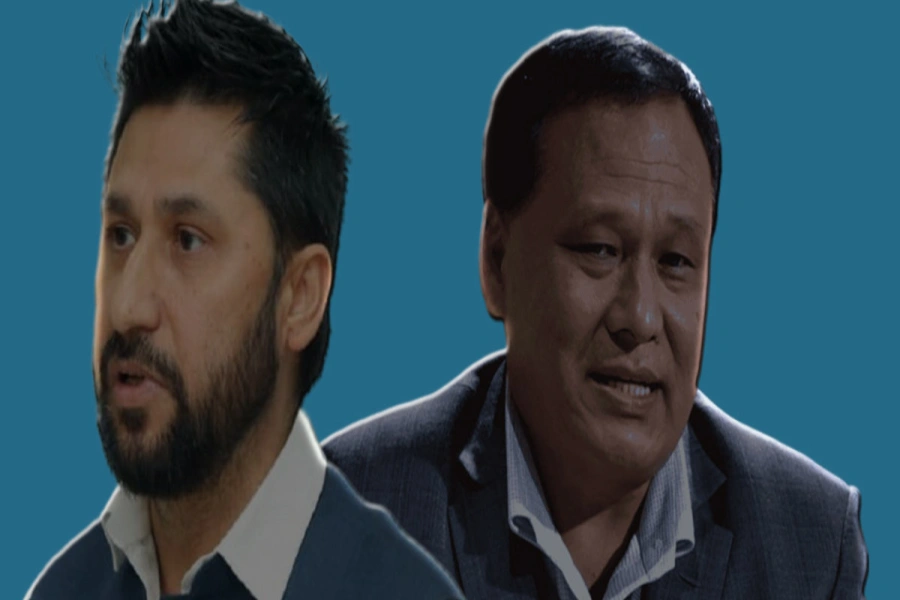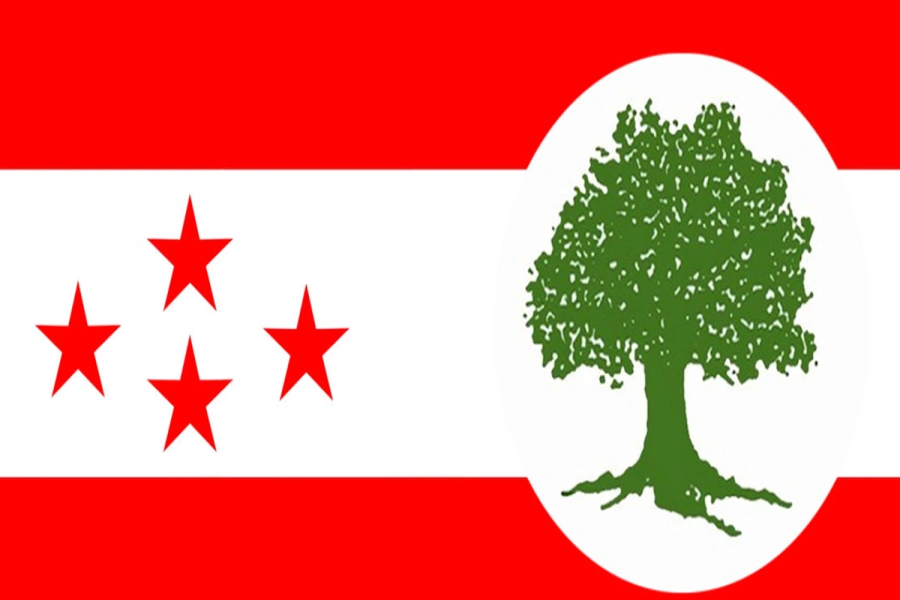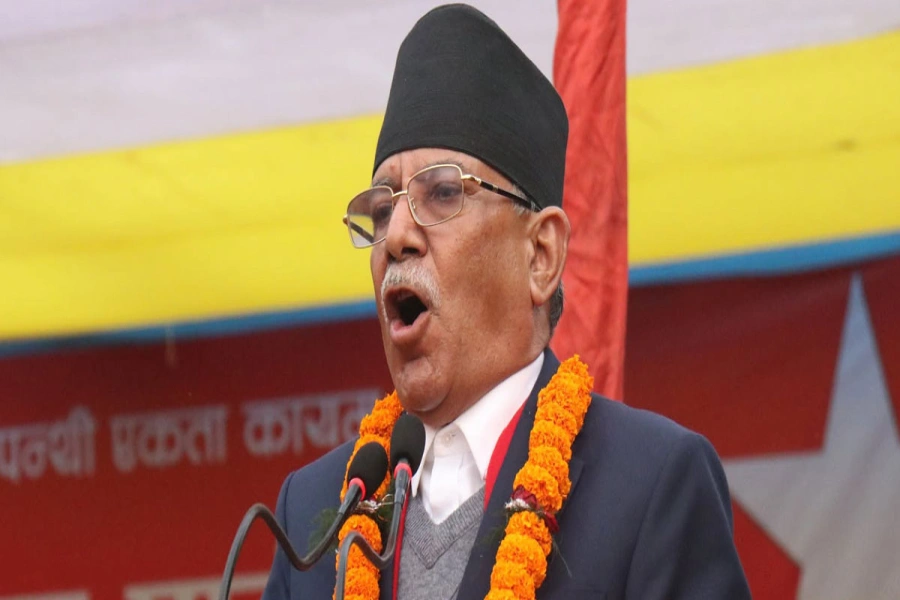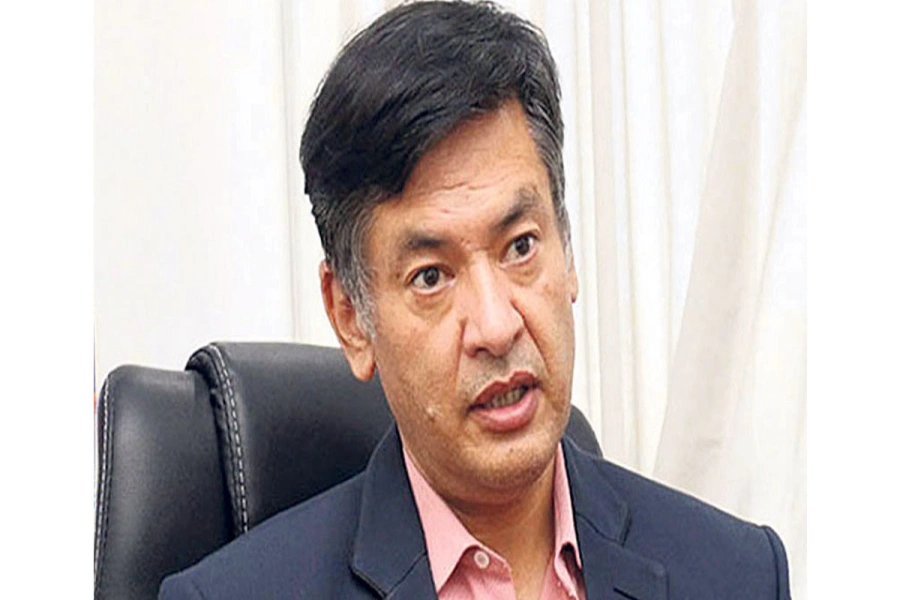A late and weak monsoon is already on the wane. Muddy streets are almost dry, but rains periodically wash down the smog emanating from main thoroughfares choked with traffic. The crisp morning air carries a hint of autumn.The emerald green around rim of the valley glistens occasionally in the mid-day sun. Brilliant sunsets play hide and seek with clouds drifting in the sky like kites on loosened tethers.
Kathmandu is bewitchingly beautiful during the period of transition from monsoon to winter when weather casts a spell over whoever cares to stop and stare. The three-headed Brahma couldn't have chosen a better time to bestow a new Veda—the Draft Constitution—upon heathens of hills and plains asking for physical and emotional succour.
People of earthquake-affected regions wanted relief and rehabilitation. The Nero-head of the Brahma in the person of Premier Sushil Koirala has played the tune of democratic values on his flute instead. Music is the food of love. Tamangs of Sindhupalchowk and Gurungs of Gorkha better be grateful for the enlightenment. The legislation required for the formation of earthquake reconstruction authority is a minor matter that will sort itself out if left ignored long enough. The government has failed to spend a paisa of over four billion dollars of international commitment made for rehabilitation and reconstruction. But so what? Making Vedic music is a worthwhile task and more important in times of multiple crises.
The Madheshis are still out in the streets for implementation of agreements that the government signed after the First Madhesh Uprising in February 2007 and the Second Madhesh Uprising in February 2008. Dozens have laid down their lives for the common cause. The Zero-head of the lawgiver is Chairman Khadga Prasad Sharma Oli, who gives a zilch for diversity, stability and unity of the country. He is busy coining pithy epithets to insult whoever dares to voice disagreement with his patently disagreeable views. Folk literature, after all, is an important component of Sanatana Dharma. Countries come and go but the community remains forever. The 'C' in CPN-UML stands unwaveringly for communalism of Tagadharis that flaunt their sacred thread as mark of superiority.
Once the Maoist Supremo, Chairman Pushpa Kamal Dahal probably accepted that his best days were over when he was forced to resign and walk out of Baluwatar in disgrace in May 2009 and has since learned to live as a complete conformist. Languishing in political wilderness, he desperately needed to don a new garb to get into mainstream. When the Zero made an offer he couldn't refuse, the Hero shed his revolutionary garments and showed to the world that he too had feet of clay.
Magars were the mainstay of Maoist armed campaigns. They have been left at the mercy of their tormentors. The Tharus gave their body, mind, heart and soul to an armed conflict they believed was being waged for equality, equity and justice. In their hour of need, they suddenly find what they considered their saviour is in fact a mere survivor with neither the will nor the means to support a long, peaceful and sustained struggle.
Dud dudes
Nobody expected much from the Nero of Baluwatar. Despite decades in oppositional politics, he seems to have failed to forget lessons of realpolitik that he learned from Tulsi Giri when he was the personal assistant of maverick politico in early-1960. Giri was known as the Mother of Panchayat System fathered by King Mahendra. When conservation of status quo is the highest aspiration, politics too becomes just another for-profit business for individuals engaged in the enterprise.
Former Maoist Baburam Bhattarai too has begun to realize significance of the Giri Ideology. There is a reason Sher Bahadur Deuba, the bargain-basement edition of upscale Giri, continues to retain centrality in democratic politics notwithstanding his utter failure during every stint in Singha Durbar.
The less said of the Zero—he adds value only when there is a non-zero ideological number behind him—the better. A by-product of Male-Mandale politics, he unquestioningly accepts that modification of Giri Ideology is neither necessary nor possible. He doesn't have much faith in republicanism, which he once compared colourfully to travelling to the moon in a bullock-cart. Since he has no courage to openly call for restoration of monarchy, he has settled for the next best thing: Institutionalization of an oligarchy committed to the principle of maintaining PEON hegemony.
There is no spectacle more mortifying than ceaseless vanities of a degraded Hero. Chairman Dahal has probably been made to think that the proposed Veda institutionalizing oligarchic order is his creation. Desperate to get a certificate for his past performances, he is ready to clutch at any document to hide his present irrelevance.
All these three gentlemen of high-caste birth, middling education and relatively low appreciation for the diversity of the country have one more thing in common. The Nero-Zero-Hero combine is convinced that most Nepalis are incapable of thinking for themselves. Hence, it is the responsibility of the vanguard to lead them towards the path of Mahendramarg to protect unity, integrity and independence of the country of Mount Everest, Lord Buddha, Pashupatinath and One-horned Rhino, which must be called Gaida à la Oli.
In the perception of Mahendramargis, the identity, security and dignity of marginalized and externalized sections of population are minor issues that will be resolved with the mainstreaming of beneficiaries of tokenism (dictionary definition: "the practice of making only a perfunctory or symbolic effort to do something, especially by recruiting a small number of people from under-represented groups in order to give the appearance of equality") in course of time. If the view was so clear right from the beginning, what was Bijaya Kumar Gachhedar doing in their company? The answer is probably buried deep inside files of Tangal Durbar!
Same shame
In December 2014, some youthful activists had brought a few Madheshi lawmakers together to explain their predicaments in the Constituent Assembly. Predictably, prominent Madheshi faces of Nepali Congress, UML and UCPN (Maoist) had chosen to abstain themselves from the informal gathering over soggy spring rolls and lukewarm tea. The younger ones, however, were there taking dutiful notes of everything uttered around the table.
Mahanth Thakur seldom minces his words. He had said in a forthright manner that all political negotiations were taking place between the Big Three and likelihood of minority-friendly constitution in existing scenario was next to nil. Upendra Yadav had thundered in his usual egoistical manner that no matter what anyone did, he was committed to continuing the struggle for the rights of Madheshis. Mahendra Yadav had opined in a roundabout manner that if Madheshis failed to accept whatever was being offered, the danger of losing even that was very real.
Participating as an observer—the unification of his outfit with Upendra Yadav's party would happen much later—Ashok Rai had perceptively observed that lips of many Madheshi leaders were sealed as they feared official retaliation. The comment was circumspect. During the break, someone remarked that Gachhedar had chosen to absent himself because he was unwilling to be made another Jayprakash Prasad Gupta.
There is a popular saying in Hindi, which translates roughly as the dictum that whoever enters into coal-pit is unlikely to emerge spotless. Tainted with tokenism, many Madheshi politicos face the quandary of Gachhedar and are unwilling to stick their neck out even though there isn't much left for them to gain from the continuity of status quo.
The First Madhesh Uprising produced Upendra Yadav. Mahanth Thakur emerged as a messiah after the Second Madhesh Uprising: Losing elections isn't dishonourable in democratic politics; there is hardly anybody of his stature even today. Gachhedar could have claimed centre-stage through the Third Madhesh Uprising. Perhaps it is fear rather than greed that is keeping him in bondage.
Tokenism, however, has its limits, as even Madheshi lawmakers of NC, UML and UCPN (Maoist) have begun to discover. The three-headed Brahma may believe that its Veda is now a done deal. Apostates, however, are much more common today than they were in 1990s. The world is changing and Nepal can't remain a land-island forever.
‘Twilight’ actor found dead with girlfriend in Las Vegas



